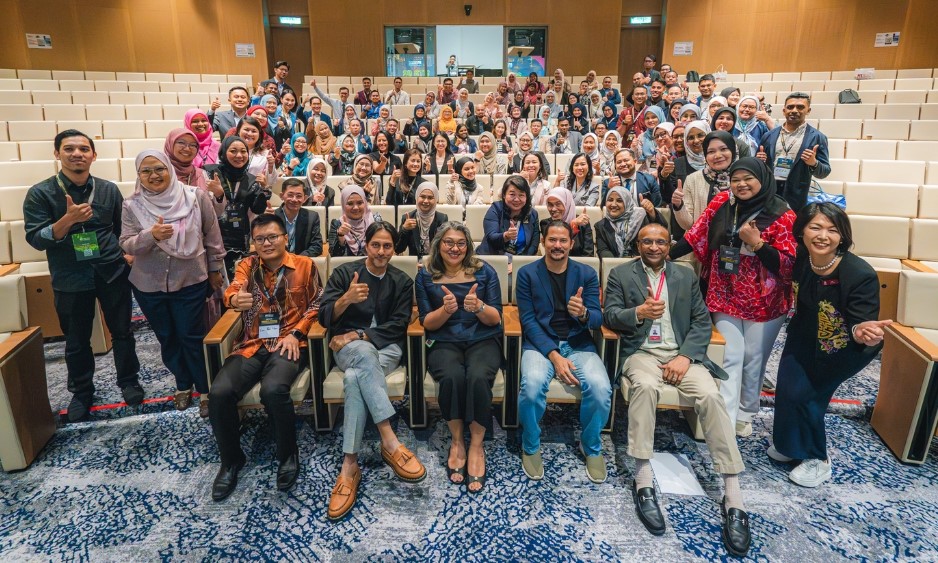- About

Established in 2015 in collaboration with MIT Sloan Management, our vision is to be a global knowledge hub, with regional insights from Asia and the emerging world.
- Faculty & Research

ASB’s research centers conduct impactful research in emerging markets, business strategies, technology, and sustainability. Together, they foster innovation in the business landscape.
- Academics

The ASB curriculum seamlessly integrates MIT Sloan’s rigor with the strategic insights of Asia. With MIT Sloan Immersion and Industry Treks, it immerses future leaders in a diverse range of industries.
- ACE

ASB has launched Agile Continuous Education (ACE), a granular set of hybrid courses that are designed to keep professionals at the forefront of their fields.
- Executive Education


ASB provides executive education programs covering corporate governance, general management, and finance, including the mandatory Financial Institutions Directors’ Education (FIDE) programs.
- Corporate

ASB excels through dynamic collaborations, addressing business challenges with innovation, built on robust partnerships.
Trump, the US Dollar and the International Monetary System: What’s Next?

Trump, the US Dollar and the International Monetary System: What’s Next?


February 5, 2025
Date
9:00 AM – 1:00 PM
Time
RM 1,500*
Program Fee
Hybrid
Format
Overview
With the election for Mr. Donald Trump as the next President of the United States, there is a good chance that economic policies of the United States will change significantly. What will be the macroeconomic effects of these policies on the US economy and by extension on the rest of the world, and in particular on the foreign exchange value of the US dollar?
The US Dollar is currently without doubt the dominant international currency. Eighty years ago, it was formally made the center of the international monetary system at the creation of the International Monetary Fund. Will this dominant position be challenged given the current geopolitical tensions?
The program will examine the near-term consequences of the Trump presidency on international macroeconomic relations one the one hand and the longer-term evolution of the international monetary system on the other.

- Identify the key factors that will determine macroeconomic outcomes of the Trump administration’s policies.
- Describe the likely outcomes of these policies for the US economy and the external value of the US dollar.
- Assess the longer-term evolution of the role of the US dollar in the international monetary system.
- Identify and evaluate possible alternative to the dollar in the international system.
- Board of directors
- Senior management of commercial banks and financial institutions
- Anyone else who is interested in the future value of the US dollar and the international monetary system

Hans Genberg
Senior Director of Central Banking and Finance Programs,
Professor of Economics
Faculty Profile
Professor Hans Genberg is a Professor of Economics at the Asia School of Business and the Senior Director of Central Banking and Finance Programs. He has a distinguished academic career as a Professor of Economics at the Graduate Institute of International Studies in Geneva, where he was also Head of the International Economics Department, responsible for the Diploma program, and a member of the Institute’s Executive Committee. He has also had teaching positions at the Graduate School of Business at the University of Chicago and the University of Rochester campus in Switzerland.
During his position as Professor at the Graduate Institute of International Studies, he supervised or co-supervised over thirty doctoral dissertations of students who have since held positions as Central Bank Governors and Deputy Governors, senior officials at the International Monetary Fund, the World Bank, the Bank for International Settlements, and the Norwegian Oil Fund, and academic positions at universities such as HEC Montreal, Boston College, New York University, and Wharton.
Professor Genberg has also held positions as Executive Director at the Hong Kong Monetary Authority and at the SEACEN Centre in Kuala Lumpur, Malaysia, Assistant Director at the Independent Evaluation Office of the IMF, as well as Director of the International Center for Monetary and Banking Studies and Director of Executive Education at the International Center FAME (Financial Asset Management and Engineering) in Geneva, Switzerland.
He has published over fifty scholarly papers and edited several books on issues related to central bank policy, international monetary relations, exchange rate regimes, reserve management, capital markets development, and monetary and financial issues in Asia.
Professor Genberg holds a PhD in Economics from the University of Chicago.
Connect with us to start
Trump, the US Dollar and the International Monetary System: What’s Next?
RM 1,500*
Fee excludes accommodation at ASB Residential for outstation/ overseas participants but can be arranged at additional cost.

RM1,500.00
Program Fee